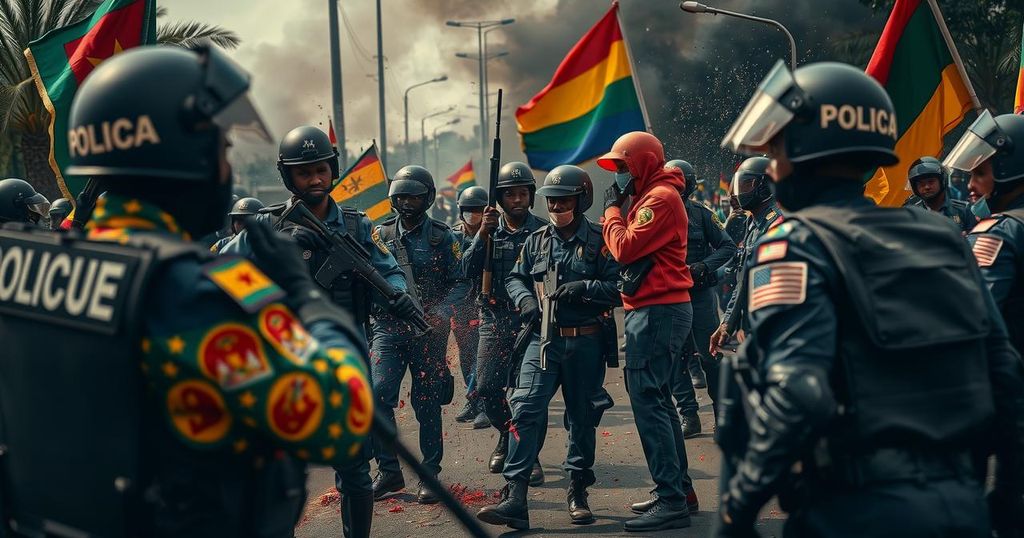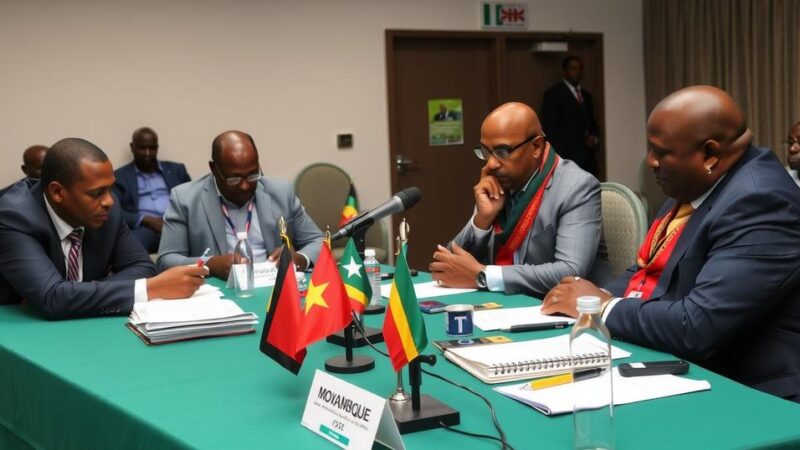The recent elections in Mozambique have triggered significant unrest, leading to the deaths of young protesters, including a 16-year-old boy named Antonio. Accusations have arisen against the police for using excessive force against demonstrators voicing dissent after the Frelimo party declared victory. This unrest has seen the youth of Mozambique rallying against the government’s longstanding rule, seeking justice and reform amidst rising casualties.
The recent political turmoil in Mozambique has led to tragic outcomes, notably the killings of young protesters, including 16-year-old Antonio Juaqim. Caught up in opposition-led protests against the controversial election results favoring the long-dominant Frelimo party, children have become victims of police violence during these gatherings. Eyewitness accounts and conflicting narratives between the authorities and opposition leaders highlight the escalating tensions in Maputo, prompting citizens to express their dissent through nightly pot-banging protests. The sentiment among the population, particularly the youth, reflects a demand for change in governance and economic opportunities, amidst rising casualties and allegations of state-sanctioned brutality. As the situation unfolds, the prospects for peaceful resolution remain uncertain, with calls for accountability and justice echoing amid grief and unrest.
The political landscape in Mozambique has been volatile following the announcement of the election results, in which the ruling Frelimo party was declared the winner with Daniel Chapo as the presidential candidate. This outcome has been met with accusations of electoral fraud from opposition leaders, including Venâncio Mondlane. The subsequent protests, which have quickly escalated into violence, have seen police accused of excessive force against demonstrators. Historical context shows that Mozambique has been governed by Frelimo since its independence, but recent dissatisfaction particularly among the youth suggests a demand for fundamental changes both in governance and socio-economic conditions.
The situation in Mozambique represents a critical juncture in the country’s socio-political fabric, characterized by increased civil unrest, allegations of police brutality, and a growing disconnect between the ruling party and its constituents, particularly the youth. Calls for justice for the victims of the protests highlight an urgent need for dialogue and reform to address the political grievances and aspirations for better living conditions among the populace. As Mozambique navigates this period of crisis, the international community watches closely, anticipating outcomes that may redefine its political landscape.
Original Source: www.bbc.com







